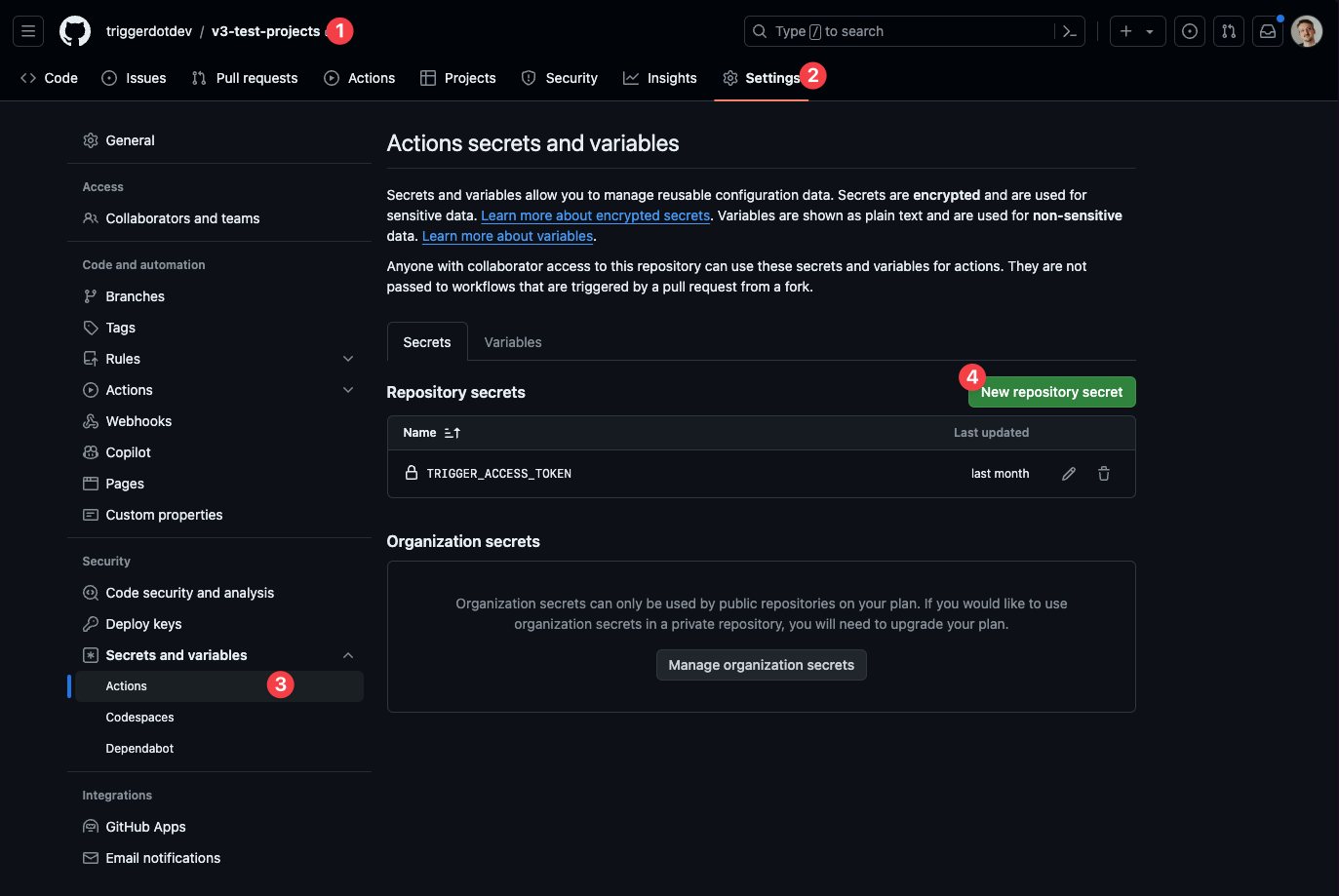main branch and the trigger directory has changes in it.
Creating a Personal Access Token
Create a new access token
Go to your profile page and click on the “Personal Access
Tokens” tab.
Go to your repository on GitHub.
Click on ‘Settings’ -> ‘Secrets and variables’ -> ‘Actions’ -> ‘New repository secret’
CLI Version pinning
The CLI and@trigger.dev/* package versions need to be in sync with the trigger.dev CLI, otherwise there will be errors and unpredictable behavior. Hence, the deploy command will automatically fail during CI on any version mismatches.
Tip: add the deploy command to your package.json file to keep versions managed in the same place. For example:
package.json script, like so:
.github/workflows/release-trigger.yml
--version to any command.
Self-hosting
When self-hosting, you will have to take a few additional steps:- Specify the
TRIGGER_API_URLenvironment variable. You can add it to the GitHub secrets the same way as the access token. This should point at your webapp domain, for example:https://trigger.example.com - Setup docker as you will need to build and push the image to your registry. On Trigger.dev Cloud this is all done remotely.
- Add your registry credentials to the GitHub secrets.
- Use the
--self-hostedand--pushflags when deploying.


